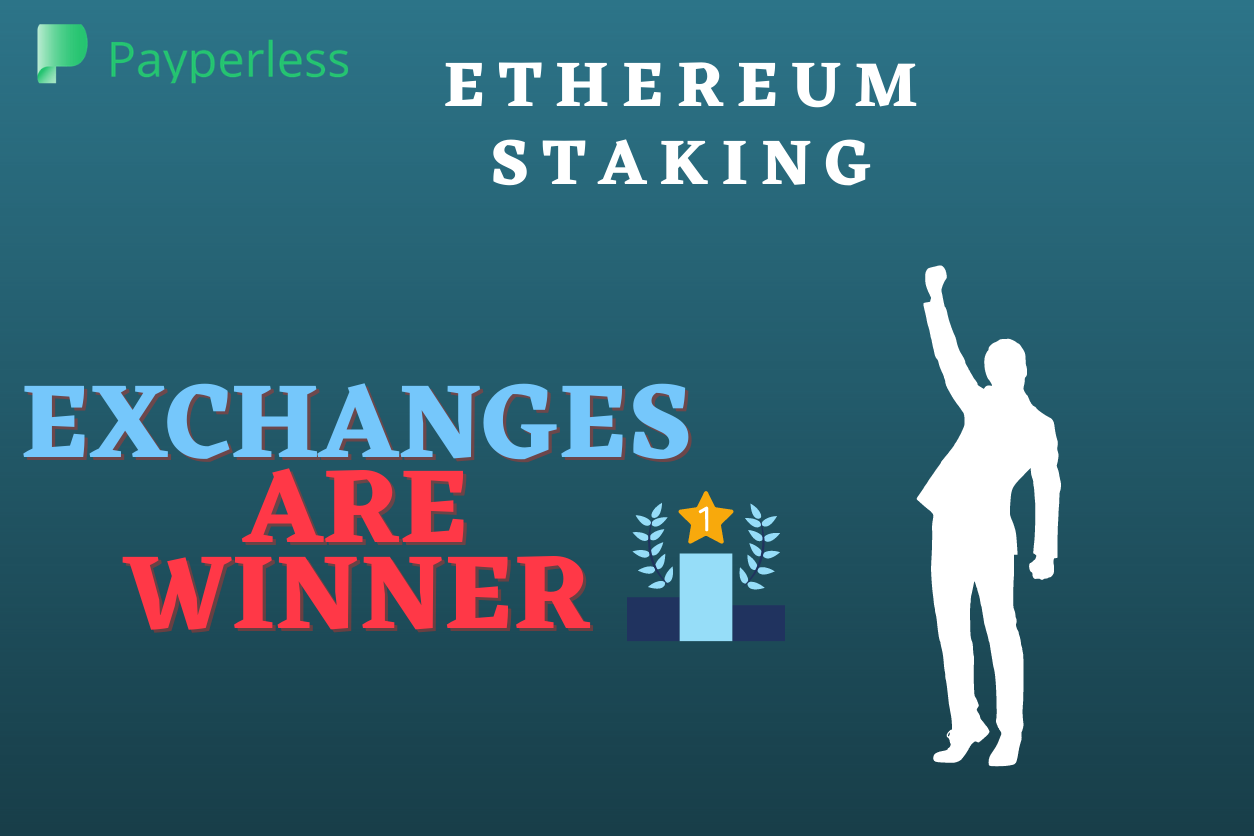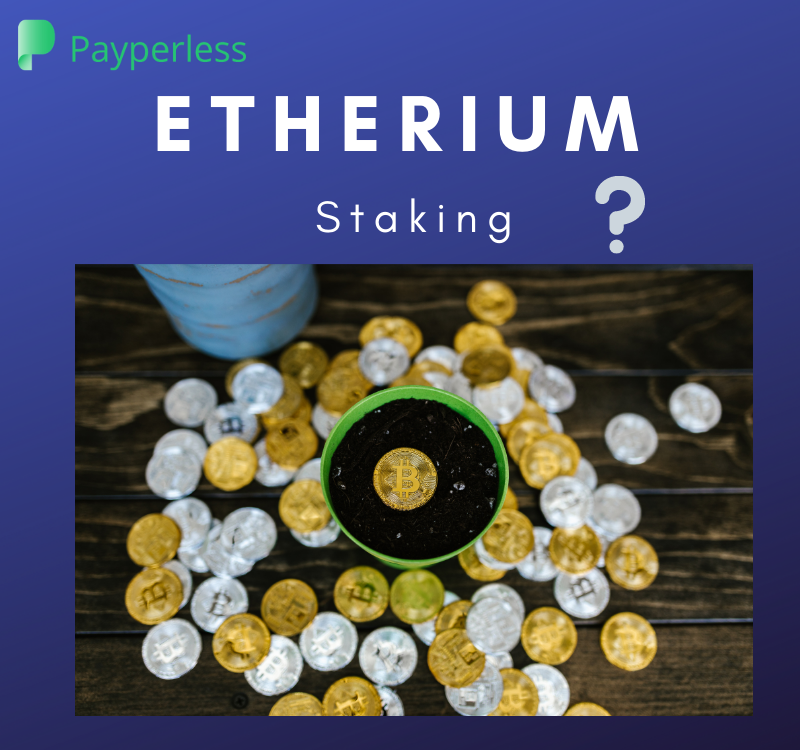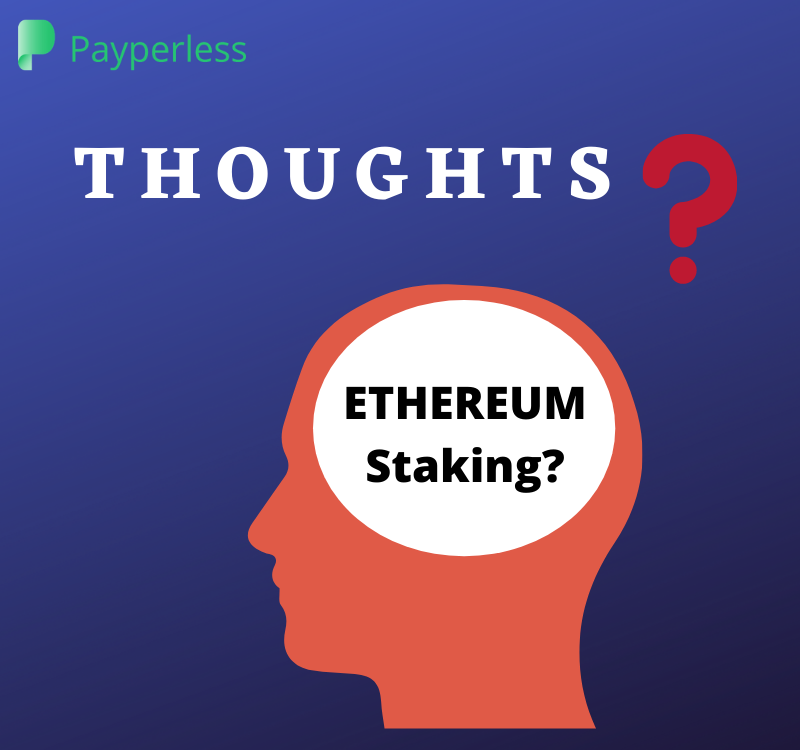Ethereum Staking: Exchanges Are the Big Winners

The creator of Ethereum, Vitalik Buterin, introduced a new concept in cryptocurrency. Some people believe Ethereum will revolutionise cryptocurrency. Some believe it will crash. Here at Payperless, we take a closer look at the pros and cons of Ethereum in our ongoing blog series, “The Good, The Bad, and The Ugly Side of Ethereum”.
Today we are discussing Ethereum staking and why exchanges are the big winners.
What is Ethereum staking?

Ethereum 2.0 has just launched its much-anticipated phase 0, which marks the network’s move from proof of work to proof of stake.This move marks the end of Ethereum mining; instead, the process will now be that traders who desire to earn money by being a part of the network will be required to “lock” their funds in to Ethereum for approximately 2 years on a smart contract that will provide them with reward tokens as time passes. For traders to do this, the network will require a minimum deposit of 32 ETH. The more ETHs that are deposited, the greater a trader’s return will be
The benefits of Ethereum staking are listed as being more sustainable than competing networks due to validators not requiring energy-intensive computers to run, more accessible to the majority of traders, and unlocking sharding, which is a proof-of-work system that dilutes the amount of computing power needed to run the network.
Why exchanges are the big winners
Before this upgrade to Ethereum 2.0, operations were earning trades at an 8% annual return on average. However, upon the Ethereum and Ethereum 2.0 merge, validators are forecasted to earn over triple of this percentage.
“It looks like around 25% per annum is the expected initial total annual return for validators. So, on your 32 Ether, you’ll be earning about 8 Ether per year, on average,” says Ben Edgington in a recent interview with CoinDesk. In addition to this upped annual percentage return on average, staking on Ethereum provides traders with a better chance of being selected by the network as a validator due to its wealth and strong stability, with a smaller chance that they may withdraw their funds (versus competing networks).
What are your thoughts on Ethereum staking?

With the bolstered exchange Ethereum 2.0 provides, more and more traders will be turning to Ethereum for staking.
Will you be one of them?
In the meantime, be sure to come back for updates via the Payperless blog: our team of experts cover topics such as Bitcoin taproot, how cryptocurrency is forecasted to impact the mobile payment market, the benefits of crypto wallets, and more. This marks the end of our “The Good, The Bad, and The Ugly Side of Ethereum” blog series! Have you read our previous three titles yet?